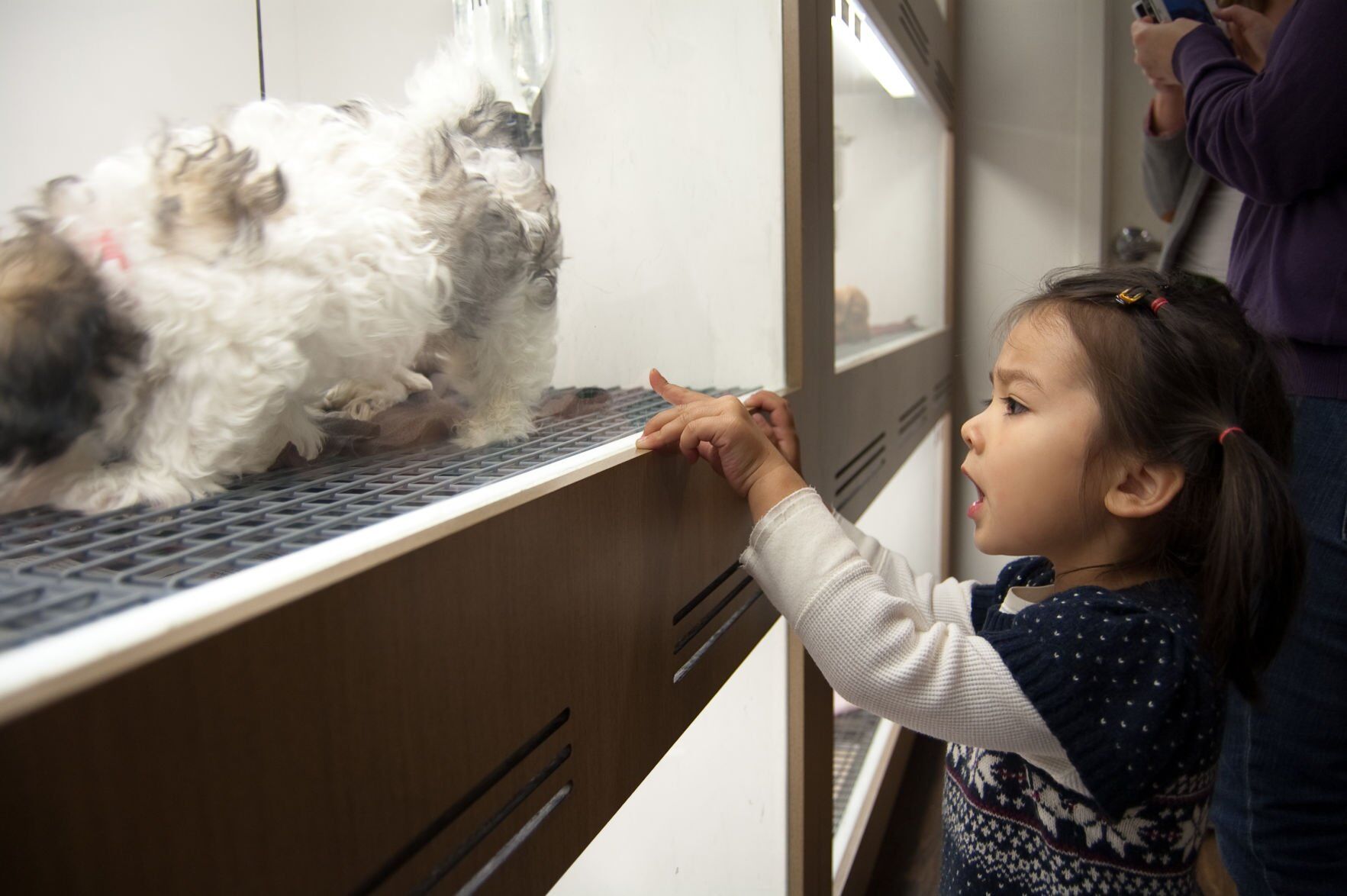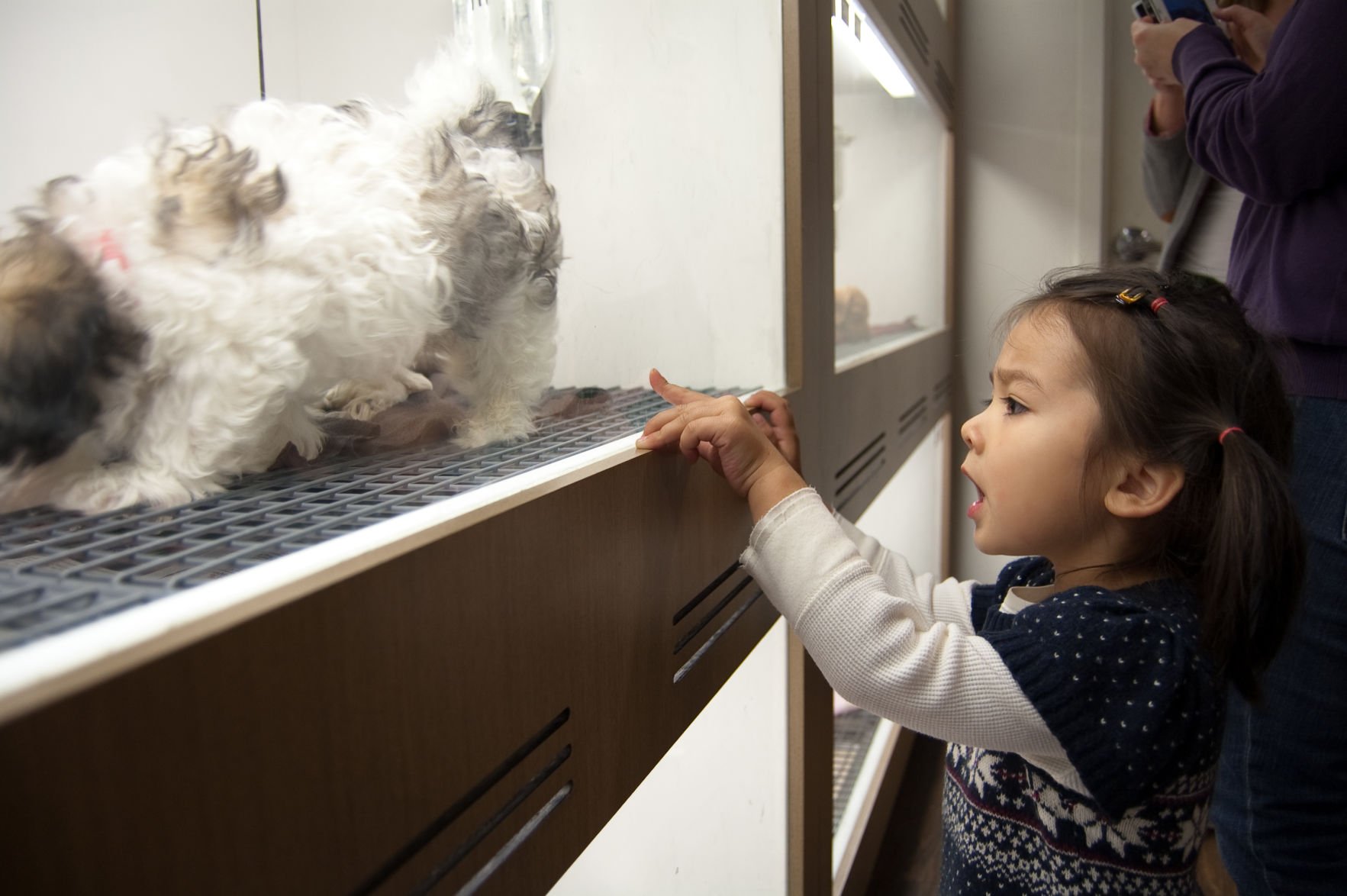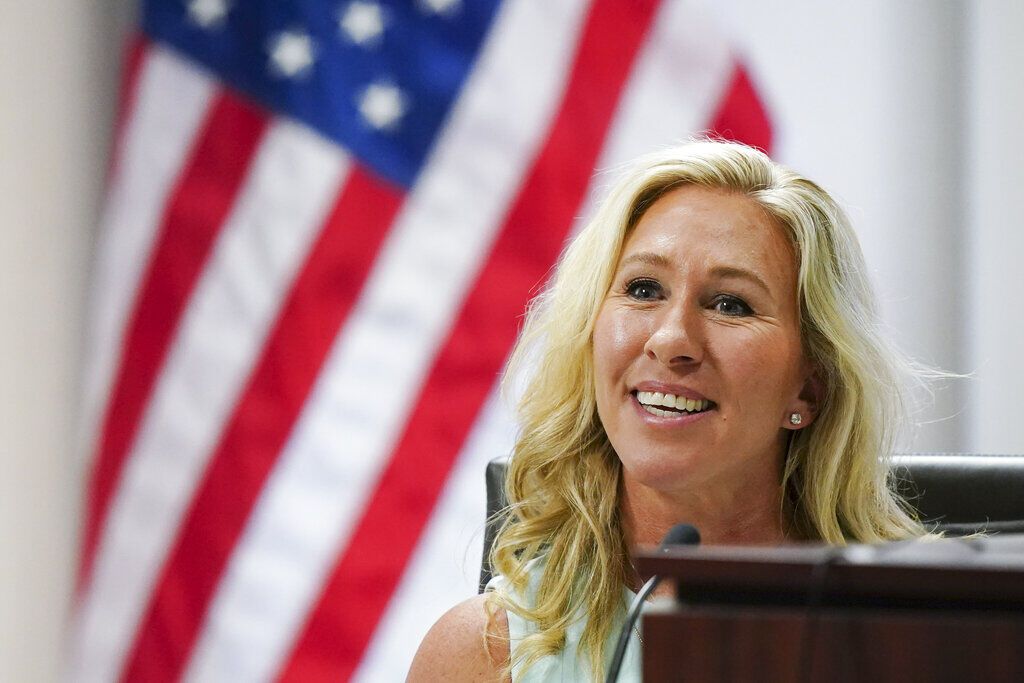Colorado Springs Council rejects resurrected measure on commercially bred pet sales

The Colorado Springs City Council rejected a resurrected and amended measure on Tuesday that sought to limit the sale of commercially bred dogs and cats at local retail stores.
The proposed ordinance sought to require pet retailers to source at least half of the dogs and cats it sold each year from public animal control shelters or animal rescue organizations beginning April 1, 2024.
It was a “softened” version, Councilman Tom Strand said, of a measure the council rejected on a split vote in November 2021. The original ordinance sought an outright ban on the sale of commercially bred dogs and cats at pet stores in town.
Colorado Springs City Council votes on measure meant to cut off the puppy-mill-to-pet-store pipeline
Advocates have argued for years in front of the City Council that Colorado Springs must shut down the market for dogs bred from large, out-of-state commercial breeders where poor, confined living conditions contribute to illness and other conditions in dogs. They have said they are particularly concerned about parent dogs that spend their lives producing puppies.

Dustin Haworth and Bree Maestas, who own the Pet City stores that have been operating for 50 years in the Chapel Hills and Citadel malls, said pet stores like theirs “play a vital role” in the pet industry. Haworth and Maestas have committed to improving the industry and continuing their own education, Maestas said.
The council rejected the revised ordinance 3-5 Tuesday, with councilmembers Dave Donelson, Randy Helms, Nancy Henjum, Mike O’Malley and Wayne Williams voting against it. Councilmembers Yolanda Avila, Bill Murray and Strand voted in favor of the measure, with Councilwoman Stephannie Fortune absent.
Williams repeated concerns the revised ordinance, like the original, would unfairly single out the two Pet City stores in town. They are the only two local retail stores that sell puppies.
“I remain concerned that this doesn’t actually do what it’s designed to do, which is addressing the needs for inappropriate breeders,” Williams said. “Instead, it singles out two retailers, and I don’t think that’s appropriate.”
Strand said he brought the measure back before the council because he believes selling commercially bred dogs in retail stores encourages puppy mills to continue operating.
A handful of people – many of whom worked with animal organizations such as the nonprofit Colorado Citizens for Canine Welfare and called from outside city limits – spoke in favor of the proposed measure, arguing against conditions in puppy mills they said can cause illness and behavioral problems in dogs.
Dogs in puppy mills, advocate Johnny Lieberman told the council, often live in confined, stacked cages and some don’t ever even get to go outside.
“Dogs held in puppy mills – it’s possible they can spend their entire lives without even touching a blade of grass. You don’t even have to be an animal advocate to think that’s just not right,” he said.
Many states and cities are also moving away from allowing commercially bred pet sales in local stores, with more than 450 ordinances cracking down on the practice, Lieberman said, including in the states of New York, California and Illinois.
According to data from the Humane Society of the United States, Lieberman said there are 32,000 fewer breeding dogs caged in puppy mills than there were a decade ago, and one-third of pet stores have stopped selling puppies in that time.
Others said they wanted transparency from pet stores about where they’re getting their animals.
“We need transparency as consumers so that we know what our purchases support,” advocate Heather Sanner said.
Haworth and Maestas said Tuesday they work with “reputable breeders” and now purchase half of their dogs from breeders certified by Canine Cares, which evaluates dogs’ physical and emotional health. Previously, Maestas said the certification limits the breeding of a dog to six litters or six years.
On Tuesday, Maestas said both Pet City stores no longer buy puppies from new breeders who aren’t certified by Canine Cares and stopped buying from breeders who won’t commit to becoming certified through the program.
Haworth said the proposed ordinance was egregious and called it “an affront” to his business.
“These presentations are of breeders or conditions that don’t represent me or my breeders,” Haworth told The Gazette in an interview following Tuesday’s meeting. He referred to photos presented by activists showing dogs at puppy mills locked in dirty, cramped cages.
Two people who have purchased dogs and other animals from local Pet City shops recalled pleasant experiences buying from the stores, and praised the knowledge and help they got in choosing their pets from the shops’ staff.
“A local, family-run business doesn’t last that long if they’re not doing something right,” said Brent Smith, a Pet City customer. “The fact they’ve been here this long shows the people in this area know them, trust them, and believe in what they are doing.”
Jennifer Clark with the American Kennel Club, the oldest registry of purebred dog ancestry in the U.S., told the council the ordinance would limit people’s choices for where they can buy or adopt pets and could send them instead to unregulated breeders.
“Our concern is that when somebody cannot find local breeder … and they are not able to go to place such as Pet City to find a regulated source … unfortunately, a number of these folks are going to go to the internet,” Clark said. “That is where scams are rife, and that’s where a lot of the irresponsible and unregulated folks are. Our concern is that this will just expand that unregulated market and actually do more harm for dogs and actually exacerbate the very issue that we all today agree on that we want to stop.”
Colorado Springs to defend firefighter in wrongful death suit
The council’s vote on the measure Tuesday came after nearly six years of advocacy from residents.
Strand said he is against selling puppies in Colorado Springs and “will continue that fight in front of this group” when he leaves council. Strand is running for election in April to become the city’s next mayor.
“This is not over. … Bringing this up to the public is important for our city of 500,000 people. I did it because it was the right thing to do in my heart and the right thing for this city,” he said.













